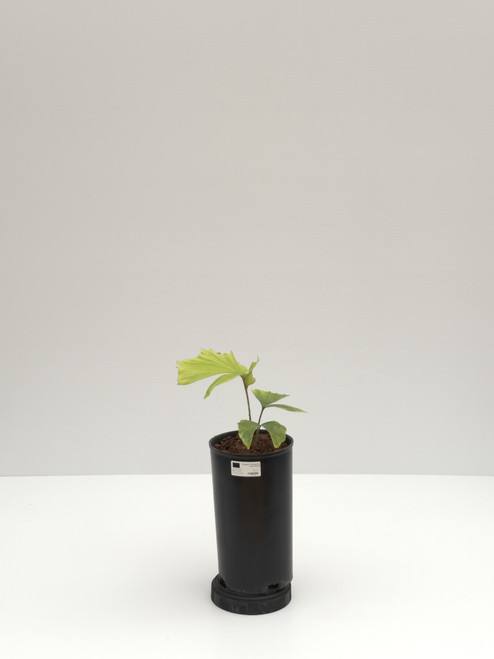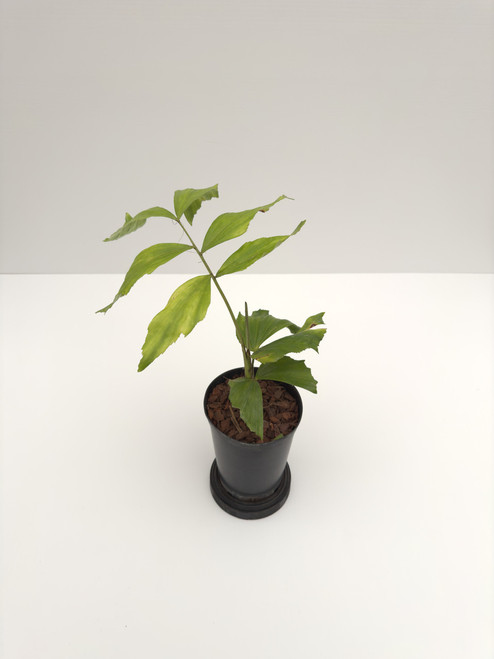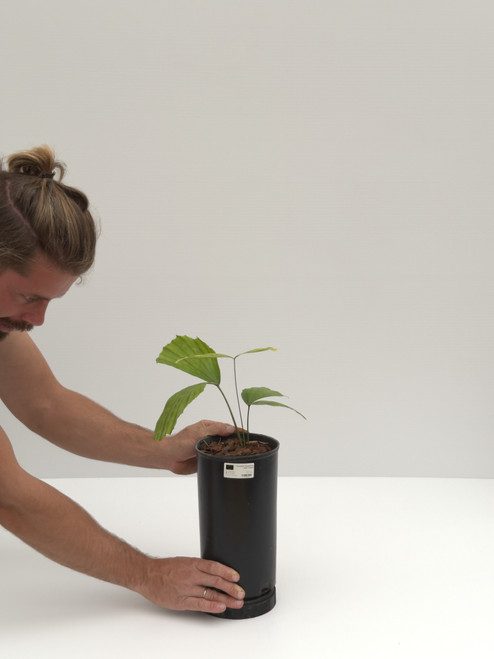Product Description
Habitat and Distribution
Caryota urens is naturally found from sea level to 300 m, in Myanmar (Burma), India, and Sri Lanka where it grows on plateau or in rain forest clearings. In habitat, they are most often found in well-draining, humus-rich soil where they receive abundant water.
Description
This species is solitary-trunked to 12 meters in height and 30 cm wide. Widely-spaced leaf-scar rings cover the gray trunks which culminate in a 6 m wide, 6 m tall leaf crown. The bipinnate leaves are triangular in shape, bright to deep green, 3.5 m long, and held on 60 cm long petioles. The obdeltoid pinnae are 30 cm long with a pointed edge and a jagged edge (hence, jaggery palm). The 3 m long inflorescence's emerge at each leaf node, from top to bottom, producing pendent clusters of white, unisexual flowers. The fruit matures to a round, 1 cm drupe, red in color with one seed. Like all Caryotas, the fruit contains oxalic acid, a skin and membrane irritant. As this species is monocarpic, the completion of the flower and fruiting process results in the death of the tree. Editing by edric.
Culture
The trunks are used as building material and the sap is converted to sugar, wine, and sago. C. urens will thrives in Southern California.
3-foot (1 m) tall specimens in 5 gallon pots will hit 30 or more feet in about three or four years planted in the ground. That's not a mis-print! They will survive freezing temperatures well into the mid-20's F., or below. Please put them where they can be removed when they seed and die, alas.
Comments and Curiosities
The Caryota species are the only palms with bi-pinnate leaves. Vernacular names : Tamil: Konda panei, Koonthal panai, Kuntha panai, Iram panai, Thippili panei. Malayalam: Ana pana, Chunda pana, Chuntappana, Cuntappana, Erimpana, Iram pana, Kala pana, Konda pana, Kundapanai, Olatti, Panamkula, Schundapana, Shundrapana, Vainava. Kannada: Bagani, Baini, Bayni, Kondapana.
They also have a toxin in their seeds, trunks and leaves, which will irritate the skin, mightily.

















